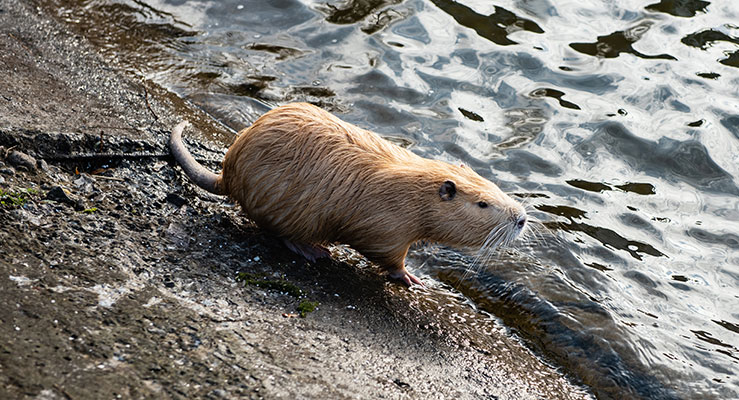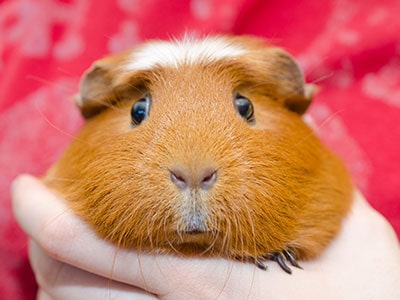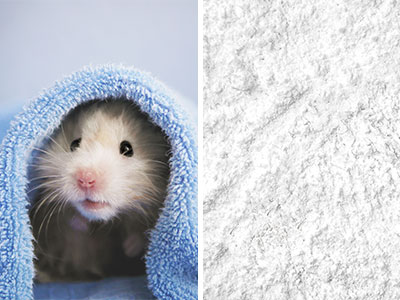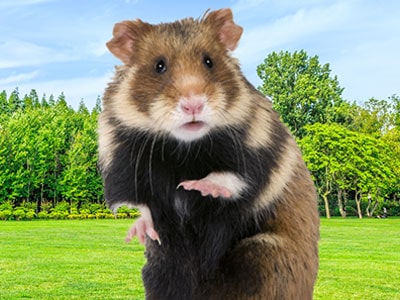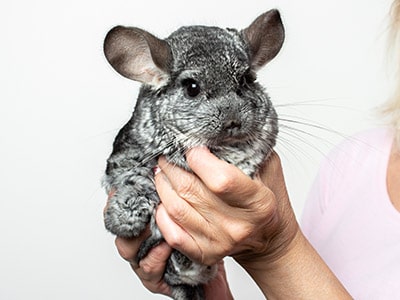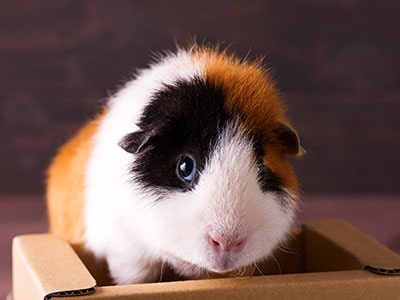Do you love rodents and wondering how would be like to have a muskrat as a pet? Keep reading to find out whether muskrats can be good pets or not.
When it comes to choosing a pet, most people are satisfied with a dog or a cat. Yet, there are also people who want a more special animal, a pet to attract attention and surprise those who cross the threshold of their house.
Although it is not uncommon for people to own rats as pets, not many have thought of domesticating their water-loving relatives, muskrats.
Before diving into details, you need to know that there are some characteristics that indicate that muskrats have some potential to be good pets, but there is also a long list of attributes of this animal that indicate that these rodents are not the most suitable animals to keep around your home.
So, today we are going to talk about these semi-aquatic rodents called muskrats and try to draw a conclusion on whether they can make good pets or not.
What are Muskrats?
Muskrats are medium semi-aquatic rodents related to mice, rats, hamsters, voles, lemmings, and gerbils. They are common in waterways of North America and Wetlands and can be spotted living near saltwater marshes, ponds, streams, and lakes. [1]
Although muskrats are commonly referred to as "rats," they are not really rats as they are not members of the genus Rattus. [2]
The exciting part about the creature is that it's adapted to swimming since it spends most of the time in aquatic habitats.
Physical Features
Muskrats have an appealing appearance, a stocky body, a scaly black tail, and a rounded head. The rodent's upperparts are usually covered with soft, dense, glossy brown underfur, which appears darker in winter and paler during summer. [3]
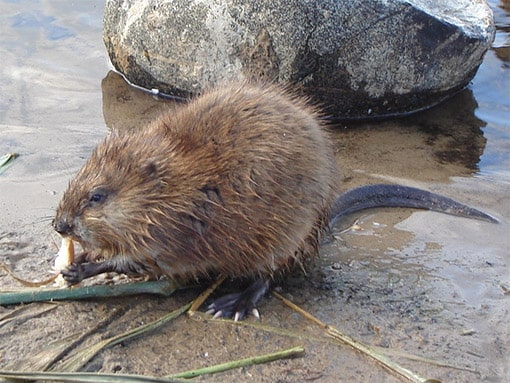
They are pretty similar in appearance to beavers, but beavers are much larger than muskrats and have a wider and more flattened tail.
Muskrats' fur is beautiful and durable. In different parts of the world, people raise this type of rodents for fur and food-source. The animal is usually popularly used for human food in some quarters.
Can Muskrats Make Good Pets?
Now that you know a thing or two about these animals, it's time to move on to the part you've all been waiting for. Can muskrats be good pets or not?
While the list of positive arguments for keeping muskrats as house pets is almost nonexistent, further, we have highlighted several reasons why you should think twice before deciding to keep Muskrats as pets in your home.
1. Bad Odor
This animal got the name musk + rat for a good reason, and that is not for its pleasant smell.
Muskrats have a pair of glands at the base of their tails that secrete a musky bad-smelling odor. This strong-smelling substance is secreted by the male and used during the breeding season to attract females.
This odor not only is unpleasant for people but may also be irritant for your pets.
2. Spread Diseases
Like many rodents, muskrats can carry a variety of diseases and parasites that can be transmitted to house pets and some even directly to humans.
This includes diseases such as:
- Tularemia
- Leptospirosis
- Omsk Hemorrhagic Fever
- Pseudotuberculosis
- Tyzzer’s disease
- Rabies
Muskrats also often carry parasites like ticks, mites, roundworms, tapeworms, and flukes. [4]
Tularemia is probably the main threat to humans. Also known as deer fly or rabbit fever, Tularemia is common among muskrats, squirrels, rodents, and rabbits. When passed to human beings, it attacks the eyes, lungs, lymph nodes, and skin.
Muskrats can also carry the rabies virus. Thus, if you'd consider keeping muskrats as pets, it would be mandatory to have your other pets vaccinated against rabies. This will protect them from contracting rabies if the rodents bite them and at the same time, will protect you and your family.
3. Muskrats Can Be Aggressive
Muskrats are wild animals, and even if raised from an early age, they still pose a risk for humans and kids if kept in a household.
They can be aggressive sometimes, are very territorial - especially during the breeding season, and they will not hesitate to bite anyone if they feel threatened. However, the cases when they attacked humans are very rare.
Kids are more susceptible to being bitten by these rodents because they may easily provoke them.
4. Masters Of Destruction
Like many other rodents, muskrats have a destructive nature. Keeping them as pets at home not only poses a danger to your belongings but will also ruin your property. They are known for digging holes everywhere.
Unlike cats and dogs, these animals are not easy-to-train, and keeping them for an extended period may become a pain.
5. Danger To Family Farms And Ponds
Do you have a beautiful fish pond? In case you have one, you can say goodbye to it because these creatures can be a pond's worst nightmare. They will dig holes everywhere, will eat your pondweeds, and their population will grow uncontrollably once they have all the favorable conditions for breeding.
Muskrats are generally omnivores, but they largely enjoy a plant-based diet made out of leaves, roots, stems, and fruits of aquatic plants.
However, they would also enjoy the fresh plants in your garden. Therefore, if you have a garden nearby, then be also prepared for the worst experience.
Before settling to have muskrats as pets, you will have to factor in their destructive nature and decide whether bringing them at home as pets is a worthwhile decision.
6. Keeping Muskrats May Be Illegal
Muskrats are considered wild animals. Therefore, in some US states, the possession of these animals as pets may be prohibited by law, without a special permit.
These laws usually vary from country to country and from one state to another. Therefore, before you decide to keep muskrats as pets, you should consult the local legislation in your area of residence.
7. You WIll Need A Pond
While a small cage can be enough for small rodents such as hamsters, mice, or gerbils, that's surely not enough space nor the most suitable environment for the needs of muskrats.
Compared with the earlier-mentioned animals, muskrats grow way larger. An adult specimen can reach a length between 16-28 in (40-66 cm), including the tail, and with a mass averaging between 1.3-4.4 lbs (0.6-2 kg).
You just cannot keep these medium-sized mammals in a small cage.
Also, muskrats in nature live near ponds, streams, and lakes. Hence, they will need an abundant water source to be happy and healthy.
Conclusion
Muskrats do not make good pets. Apart from the fact that they can carry some diseases that can be transmitted to both pets and humans, these rodents have aggressive behavior, need a large space with a water source, and do not have the most suitable features for a pet.
Resources:

